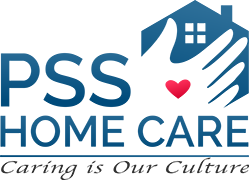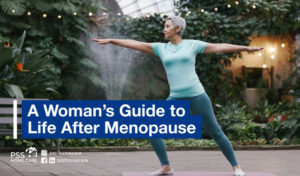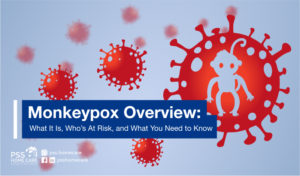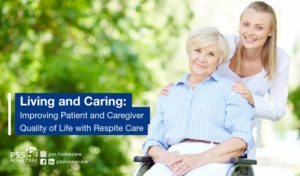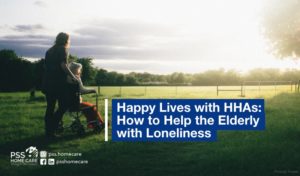A Woman’s Guide to Life After Menopause Menopause, which occurs...
Read MoreA Conversation with a Covid-19 Survivor:
PSS Home Care’s Noah Ramos
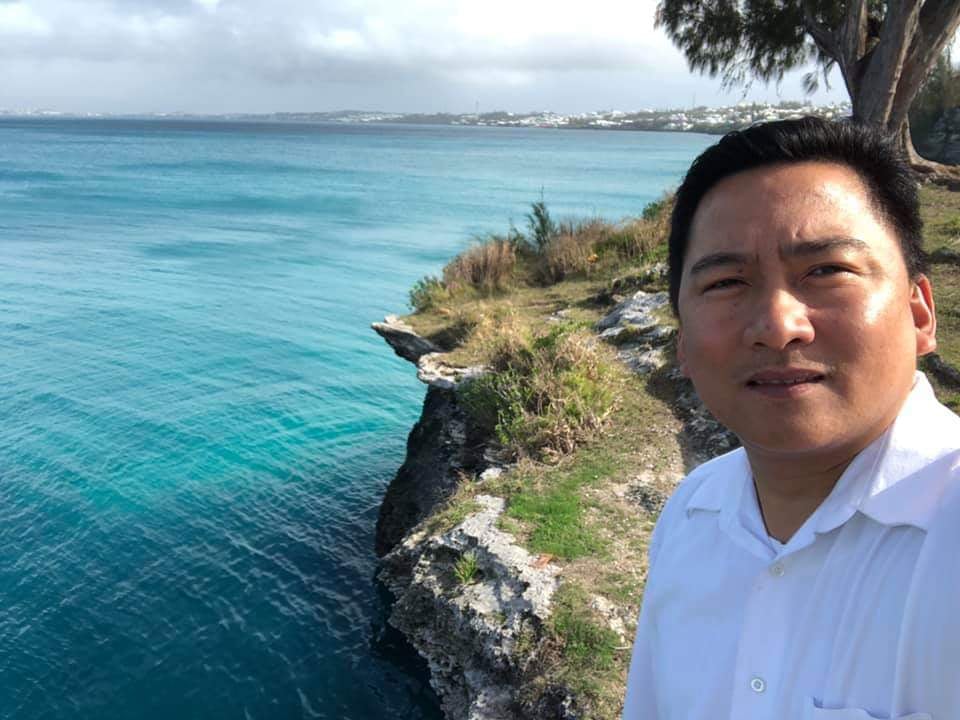
As of writing time, the Covid-19 pandemic has infected more than 6 million individuals worldwide. We have stood witness to how this highly aggressive disease operates — it does not pick and choose its victims. Today, there are more than 1.4 million individuals who are Covid-19 positive in the United States. This illness has taken the lives of more than 111,000 people as of today. But there are those who have been fortunate to recover from this disease.
We virtually sat down with one of our team’s managers, Noah Ramos, to talk about how he beat Covid-19.
Hi, Noah, I hope you’re feeling fine! How are you?
I’m feeling much better, thank you. I’m glad that we have a few moments to talk, finally!
I know! But of course, we had to prioritize your full recovery. But today, we can finally talk about your Covid-19 story.
Yes, thankfully I am now fully recovered, enjoying my time with my wife and kids. I’m ready when you are!
Okay! Let’s start with this one: What made you go and get checked? What symptoms did you initially feel?
I had high fevers, especially at night. It would shoot up to as high as 102°. I also didn’t have an appetite and felt weak. I’m familiar with the symptoms of Covid-19 because of news reports and because of social media. Even before I took the Covid-19 test, I was sure that I had the virus — I definitely knew that I was Covid-19 positive even before the test results came in.
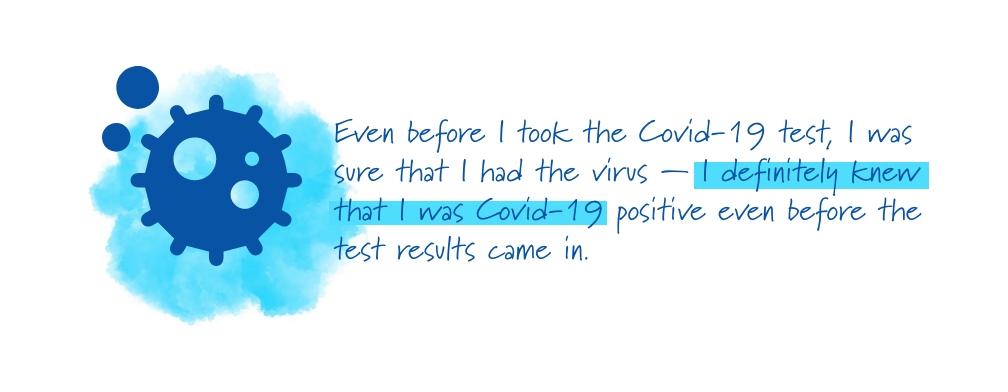
From the very beginning, your gut told you that you had Covid-19.
Yes, that’s how I felt and as it turned out, I was right.
I remember that fateful night well. I told my wife that my shoulders were painful and that I just wasn’t feeling well. She checked my temperature and it was normal. But I still felt that something’s not right with me. But just to be safe, I chose to keep my distance from my loved ones at least for that evening and slept on the couch. After five hours, she checked my temperature again. She said that I had a mild fever. At around 4 or 5 a.m., she woke up and checked my temperature for the third time — she found that my fever went up. Immediately, we made a separate area for me. We prepared everything that I needed so that I wouldn’t need to touch other things in the house, like my own cup for drinking. On the same day, we rented an Airbnb so that I can isolate myself completely.
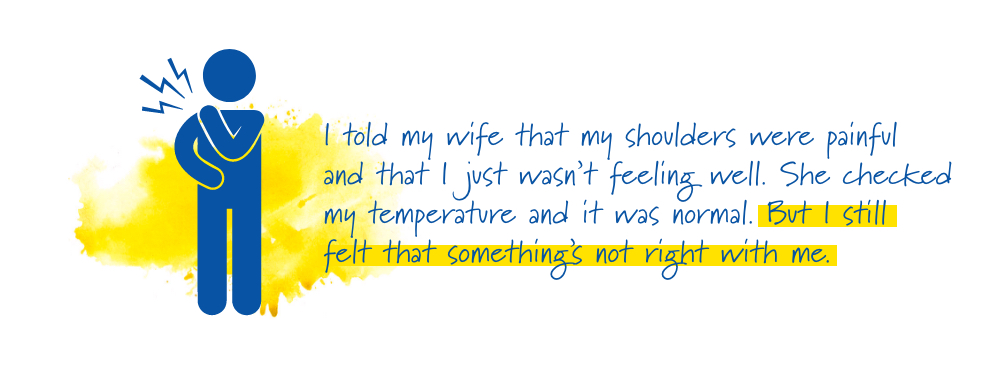
Though you were pretty sure that you had the virus, how did you feel when the results came back? How did you react when you confirmed that you were Covid-19 positive?
I honestly felt very worried. I was afraid that I might infect my family. I have a wife and two daughters and I didn’t want them to get sick.
For you, what was the worst thing about having Covid-19?
There are just so many challenges that come with this illness, really. I wasn’t able to eat anything except for maybe an apple each day for about 5 days. I felt so weak, that I just wanted to stay in bed and rest all day. I couldn’t breathe. I mean, it was so hard to breathe. Nine days after I started developing symptoms, I could barely speak — if I tried to speak, even if I would just blurt out one word, it would make me cough.
But I think the worst thing about having Covid-19 was the isolation. I had separation anxiety. My youngest is still a toddler — she’s such a sweet girl, and we haven’t been separated for such an extended period. And you know, babies grow up so fast. When I left to self-isolate, she was almost about to walk — she can take seven to ten steps. When I came back after my isolation, she was already walking! So I missed that part of her life during my isolation.
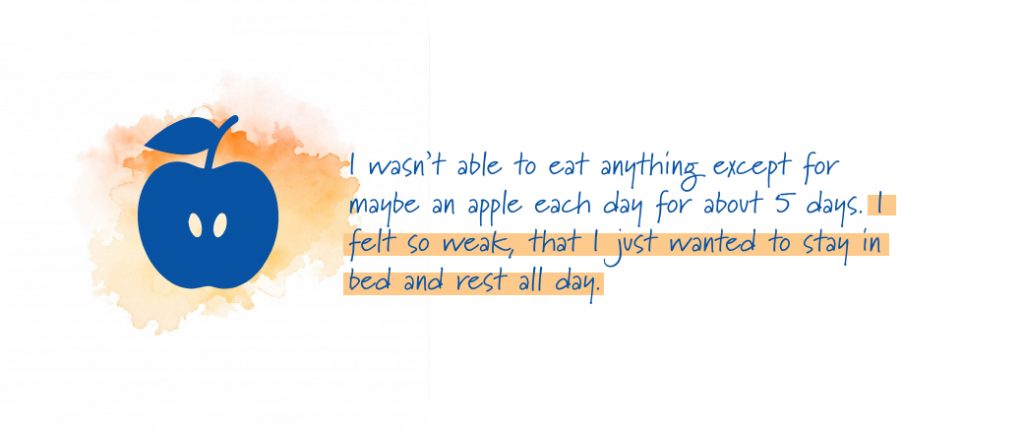
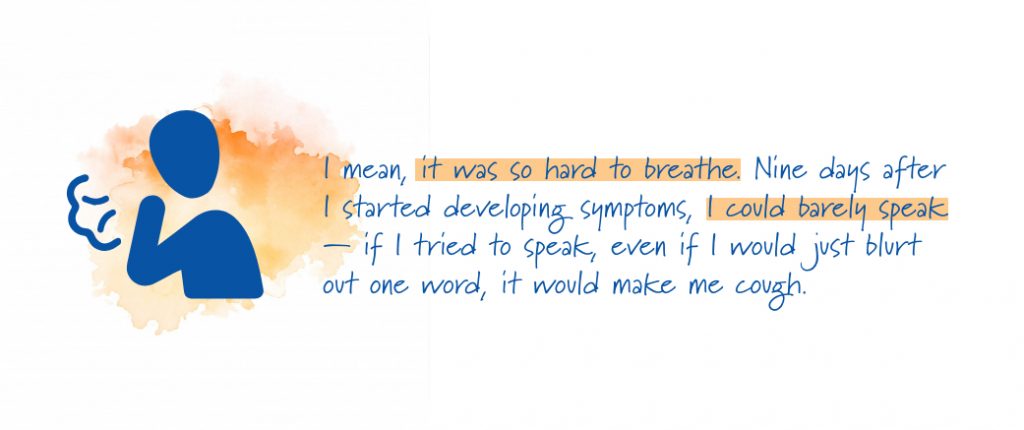
How did you cope with being self-isolated?
I’m a bit introverted — the more I’m by myself the more creative I get. I remember thinking that my self-isolation would be a kind of a vacation for me: I wouldn’t be working, I wouldn’t have any distractions, I would have a lot of free time on my hands. So when I went to my Airbnb, I brought my books and my notebook with me because I had a project in mind. I was always saying that I needed some free time to do some of my passion projects — or so I thought. When I started to get sick, I was knocked out the whole day. I really couldn’t do anything else but to rest in bed. So I had a lot of time in my hands but I didn’t have much strength to do anything else other than to rest.
When I started getting better, I started going on online classes. I went on YouTube to learn how to play the guitar better. I finished reading two books. I was able to review my shorthand. I managed to polish some old skills that I had.
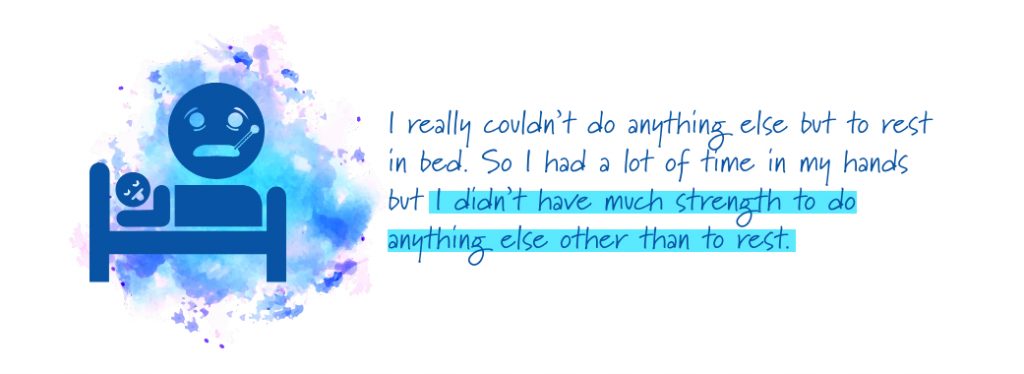
When did you start feeling better?
It’s odd because my symptoms were… well, in the morning I would think that I’m okay. But then, I noticed a pattern: Every night, starting at 6 p.m. onwards, I would get a fever. By around 9 or 10 p.m., my fever would reach around 101° to 102°. It felt really uncomfortable all through the night, and I’d have an hour or two of sleep. Then, when morning came, I’d feel fine.
On my second week of being infected with Covid-19, I remember that it was a Saturday night, and I was waiting for my fever to come. But as the hours passed, my temperature remained normal. That night, I slept more soundly. I awoke feeling better — still without a fever. The same thing happened on Sunday. That Monday, I decided to get a Covid-19 rapid test and found out that I was finally Covid-19 negative.
What were your thoughts during this time?
The first time I learned that I was Covid-19 negative, I was really overjoyed! But I didn’t have the confidence to hug my wife yet during that time — I was just a bit paranoid and scared that I would infect her. I told her that I wanted to get re-tested. And so I did, after three days, and the results were still negative. I confirmed that I was finally healed.
It’s really an overwhelming feeling because I’m a family man. I was so excited to hug my children. I couldn’t kiss them yet, to be honest, and I just hugged them.
Ultimately, I just wanted to thank God because I was given more time to see them grow.
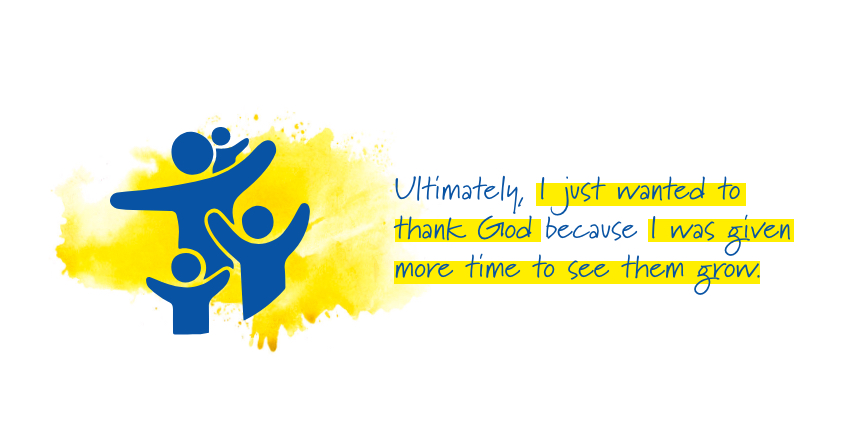
What has been your biggest realization after recovering from Covid-19?
I just realized how many people love me. I feel so blessed knowing that there are a lot of people praying and caring for me. I’m so humbled by that.
As part of PSS Home Care, what learnings from battling and surviving this disease do you think you can apply in the company?
When you’re sick, you know, a simple gesture of — a simple text message… Those simple messages that you receive when you’re sick or when you’re by yourself, reading those and hearing your friends’ and loved ones’ voices when they call — it’s priceless.
These sincere messages — we’d need to actively integrate these in our communications with our colleagues, with our clients, and their loved ones more often. It’s important for everyone to feel that they’re not alone, especially in difficult times and in isolation. I think now more than ever, we have to be the voices of hope and comfort to those around us.
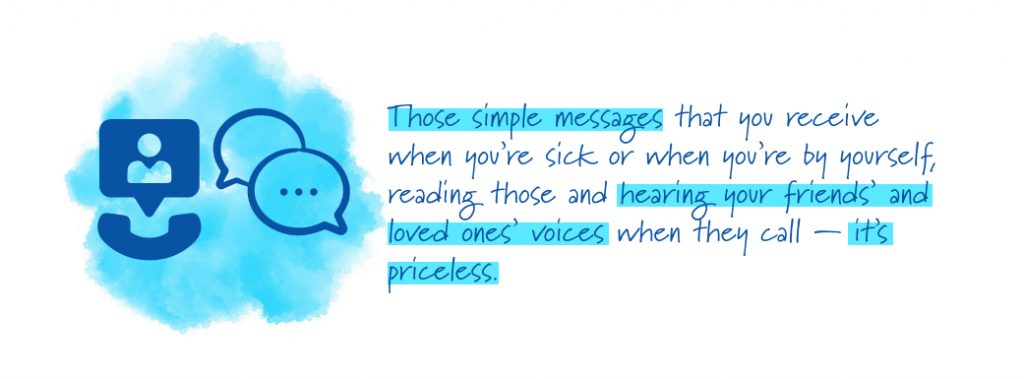
We have always banked on our culture of caring for others. How do you think we can improve our caring culture to help those who we care for — older adults — who are at higher risk of contracting this disease?
This is what I want everybody to know about the culture of caring that PSS is bringing to the world — the one who was taking care of me when I fell sick with Covid-19 was the CEO of the company. And my wife and I are very grateful. Ms. Luisa Remponi, our CEO and a nurse practitioner, was the one getting my vitals every day and risking her health to care for me. From the top to the bottom of the organization, the culture of caring is expressed. And it just really makes me proud to be a part of this company.
Part of our caring culture is the art and science of empathy. Sometimes, we just don’t know how older people really feel and what they’re thinking. The good thing is, on top of our being empathetic and sensitive to their needs and feelings, now I know how being a Covid-19 patient feels like. I have experienced it firsthand and I can share my experience with our healthcare team. In fact, it’s not just me who fell ill with Covid-19 — some of our employees became sick as well. We can all use our experiences to provide better, more efficient care to those who are more vulnerable. We can use what we now know about the disease to better identify and assess signs and symptoms so that we can take immediate steps. Because we know how the body feels when it is afflicted with Covid-19, we can provide better comfort and assistance.
Knowledge is power. The more you know, the more you will be safe, the more that you’ll lessen the risk of contracting this disease, and the more that we can extend better service to those who are at most risk. It’s my goal to share my experiences and pass all of the vital information to everyone in the company. I believe that we can all use the knowledge that we have to protect ourselves and our clients.
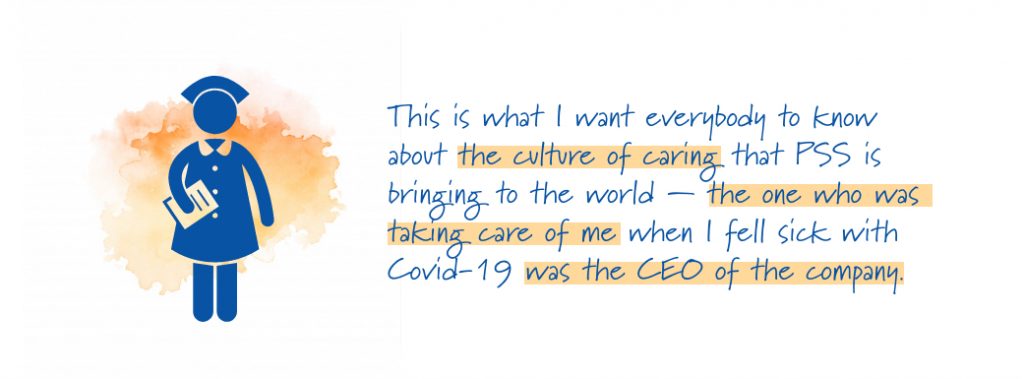
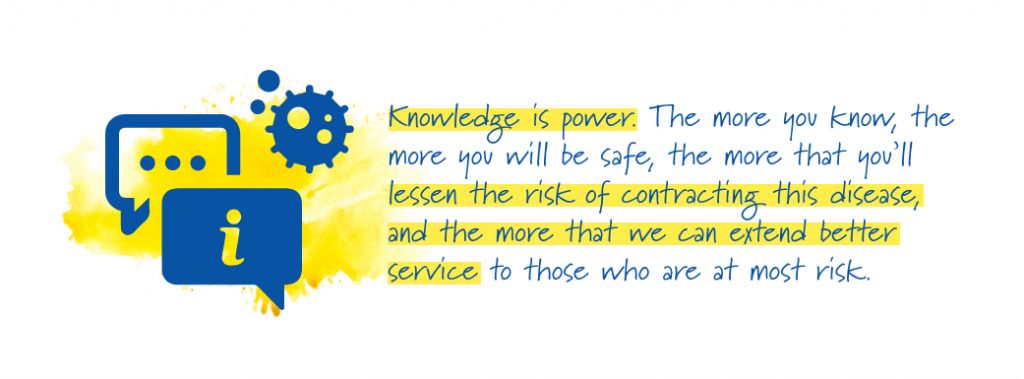
What is your message for those who are battling Covid-19, especially to our brave front-liners?
You know what, I remember when I was in isolation, there was always someone — someone brave — who would tirelessly knock on my door to check up on me. To see if I’m okay. To assist me. She was there, risking her life. I mean, she has a family of her own. But she was doing her duty, her calling, and I am just so appreciative of her — like all of the Covid-19 patients and their loved ones, I am so grateful for our healthcare professionals. Every day, they are risking their lives to do their jobs. They are battling, fighting each day just so they can continue to care for those who need them the most.
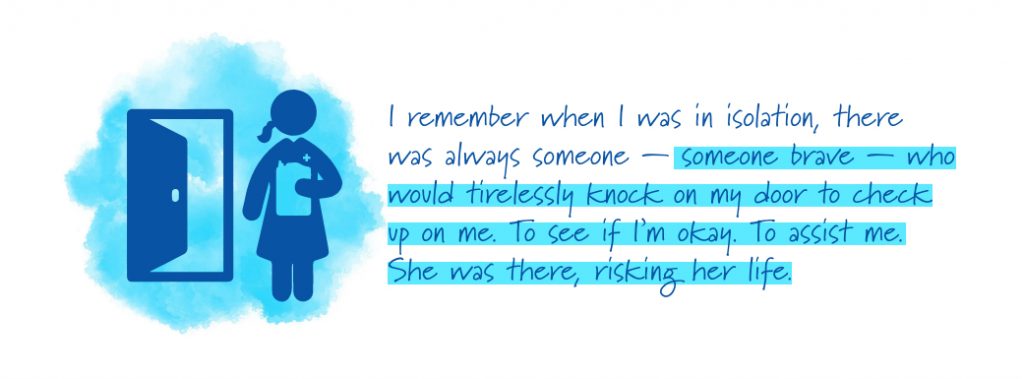
Check out our other articles
Monkeypox Overview: What It Is, Who’s At Risk, and What You Need to Know
Monkeypox Overview:What It Is, Who’s At Risk, and What You...
Read MoreLiving and Caring: Improving Patient and Caregiver Quality of Life with Respite Care
Living and Caring: Improving Patient and Caregiver Quality of Life...
Read MoreHappy Lives with HHAs: How to Help the Elderly with Loneliness
Happy Lives with HHAs: How to Help the Elderly with...
Read More